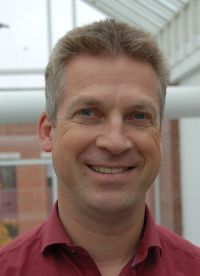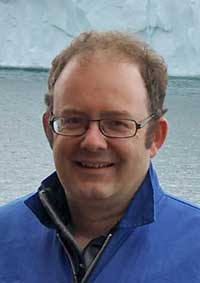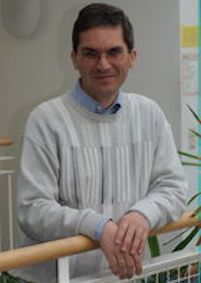Climate and Ocean
Lecturers: Tim Jennerjahn, Heiko Pälike, André Paul
This course introduces the basic processes in the atmosphere and ocean, investigates their essential forcing factors and explains the interaction between the two systems. Selected physical aspects are the Earth`s energy and water balances, the general circulation of the atmosphere, the wind-driven and thermohaline circulation of the ocean, the water masses and their formation as well as coastal upwelling. Furthermore, it provides an overview of the biological productivity and carbon export in the ocean and their relation to macronutrients, trace elements and the ocean circulation. Exercises are an integral part of this module and allow for a deeper insight in the important physical-chemical-biological processes in the atmosphere and ocean.
Sustainable Development Goals:
The knowledge provided in this module on (i) uptake, transport and transformation of carbon dioxide and energy in the atmosphere and the ocean and on (ii) the physical and biogeochemical cycling of elements, marine life, pollution and ocean acidification is highly relevant in terms of the Sustainable Development Goals 13 "Climate Action" and 14 "Life Below Water".
- to identify key factors influencing the Earth`s climate system
- to describe the processes that cause large-scale ocean currents
- to recognize that ocean currents, marine life and the turnover of energy and matter are closely interlinked
- to explain the elementary marine biogeochemical processes and outline the "biological pump" and its role in the marine carbon cycle
The three components of the course are assessed through a Modulklausur (written exam) which consists of three equally weighted parts. An understanding of the module as a whole is assessed by questions that integrate the knowledge across the three components.
written exam
Charles Cockell et al.: An Introduction to the Earth-Life System. Cambridge University Press, 326 pp.,2008.
Hartmann, Dennis L.: Global Physical Climatology. Elsevier, 2nd edition, 498 pp., 2016.
Open University: Ocean Circulation. Butterworth-Heinemann, 2nd revised edition, 286 pp., 2004.
Open University Course Team (1997). Biological Oceanography: An Introduction. Butterworth-Heinemann, 2.Auflage, 314 p.
Open University Course Team (2005) Marine Biogeochemical Cycles. Butterworth-Heinemann, 2.Auflage, 130 p.
Open University Course Team (1995). Seawater: its composition, properties and behaviour. Butterworth-Heinemann, 2.Auflage, 168 p.
Libes, S.M. (2009). An Introduction to Marine Biogeochemistry. Academic Press, 2.Auflage, 928 p.
Levinton, J.S. (2013). Marine Biology: Function, Biodiversity, Ecology. Oxford University Press, 4.Auflage, 576 p.
1st SWS: Introduction to the climate system: atmosphere, ocean, land surface, cryosphere and biosphere
2nd SWS: The global and surface energy balance
3rd SWS: Elements of atmospheric radiative transfer and climate
4th SWS: The hydrological cycle and atmospheric general circulation
5th SWS: Global and regional climate change
6th SWS: The principles of the wind-driven surface currents
7th SWS: The subtropical gyre, coastal upwelling and oceanic teleconnections
8th SWS: The deep ocean: water mass formation and distribution, thermohaline circulation
9th SWS: Instruments and methods: measuring temperature, salinity, pressure, currents and tracers
10th SWS: Ocean waves: wind-driven shallow and deep-water waves, tsunamis and tides
11th SWS: The chemical environment: sources, transport, transformation and final fate of dissolved and particulate substances in the ocean.
12th SWS: The living world: productivity, food webs, habitats, Redfield ratio, ecology, biodiversity.
13th SWS: The marine carbon cycle and its relation to climate, circulation and the geosphere: terrestrial inputs, carbonate system, particle flux, carbon pumps in the ocean.
14th SWS: Ecological consequences of changing element cycles and relevance for geoscientists.
Basic Data
05-BMG-EE3-1
Study Program
Bachelor Marine Geosciences
Module Name
Physical, Chemical and Biological Oceanography
Course Type
Lecture, Exercise (L+E)
Second Year of Study
6 CP
5 SWS
Winter Term
Course Language
English
Contact Person

Leibniz Centre for Tropical Marine Research (ZMT)
PD Dr. Tim Jennerjahn
ZMT 1103R
Phone: +49 421 23800 44
tim.jennerjahn leibniz-zmt.de
leibniz-zmt.de
Leibniz Centre for Tropical Marine Research (ZMT)
PD Dr. Tim Jennerjahn
ZMT 1103R
Phone: +49 421 23800 44
tim.jennerjahn leibniz-zmt.de
leibniz-zmt.deLecturer

PD Dr. Tim Jennerjahn
ZMT 1103
Phone: +49 421 23800 44
tim.jennerjahn leibniz-zmt.de
leibniz-zmt.de
PD Dr. Tim Jennerjahn
ZMT 1103
Phone: +49 421 23800 44
tim.jennerjahn leibniz-zmt.de
leibniz-zmt.de
Prof. Dr. Heiko Pälike
GEO 2150
Phone: +49 421 218 - 65980
hpaelike marum.de
marum.de
Prof. Dr. Heiko Pälike
GEO 2150
Phone: +49 421 218 - 65980
hpaelike marum.de
marum.de
Dr. André Paul
GEO 5510
Phone: +49 421 218 - 65450
apaul marum.de
marum.de
Dr. André Paul
GEO 5510
Phone: +49 421 218 - 65450
apaul marum.de
marum.de
